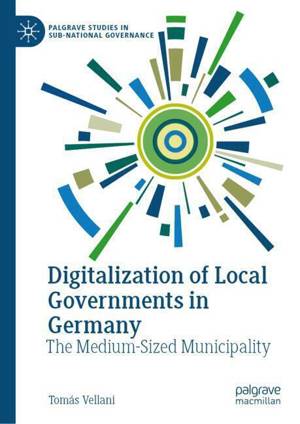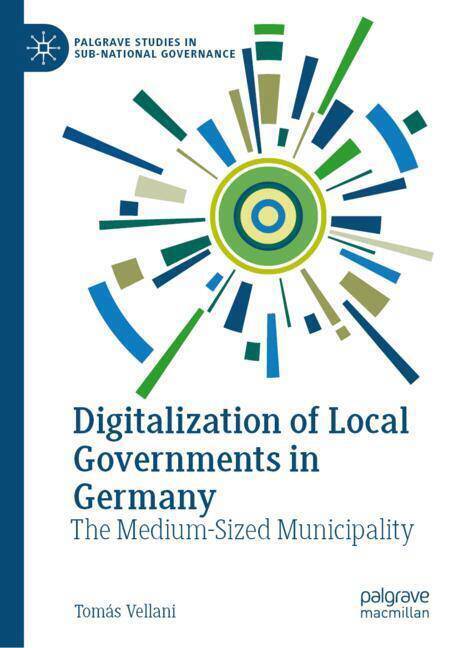
- Afhalen na 1 uur in een winkel met voorraad
- Gratis thuislevering in België vanaf € 30
- Ruim aanbod met 7 miljoen producten
- Afhalen na 1 uur in een winkel met voorraad
- Gratis thuislevering in België vanaf € 30
- Ruim aanbod met 7 miljoen producten
Zoeken
€ 126,95
+ 253 punten
Omschrijving
This book provides an in-depth analysis of the digital policy of medium-sized municipalities in Germany. Mostly ignored by empirical research, the size of these municipalities has been characterized both as an advantage and a limitation for digitalization, with scholars alternately emphasizing agility and shorter administrative paths on the one hand, and the lack of capacity and economies of scale on the other. Utilising a mixed methods approach combining process-tracing and web scraping, the book analyzes the characteristics of digital policy in medium-sized municipalities, and the effects of digitalization governance on service provision. It traces the historical trajectories of digitalization in pioneering municipalities, examines which factors influence favorable digital transformations, and analyzes the organizational structures dedicated to digitalization. The book also puts forward a typology to classify municipalities according to their digital governance, quantitatively describes the landscape of medium-sized municipalities, and delivers insights on the effects of governance on digital services. It will appeal to scholars, students and practitioners of public administration, local government and digitalization.
Specificaties
Betrokkenen
- Auteur(s):
- Uitgeverij:
Inhoud
- Aantal bladzijden:
- 194
- Taal:
- Engels
- Reeks:
Eigenschappen
- Productcode (EAN):
- 9783031860492
- Verschijningsdatum:
- 30/05/2025
- Uitvoering:
- Hardcover
- Formaat:
- Genaaid
- Afmetingen:
- 148 mm x 210 mm

Alleen bij Standaard Boekhandel
+ 253 punten op je klantenkaart van Standaard Boekhandel
Beoordelingen
We publiceren alleen reviews die voldoen aan de voorwaarden voor reviews. Bekijk onze voorwaarden voor reviews.











